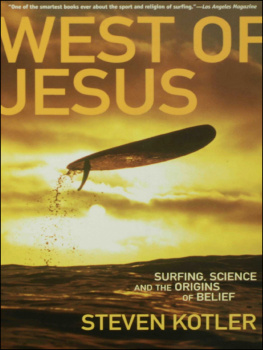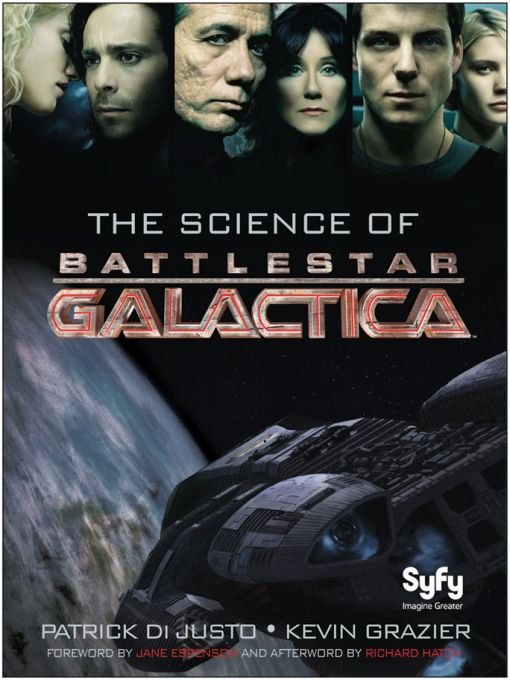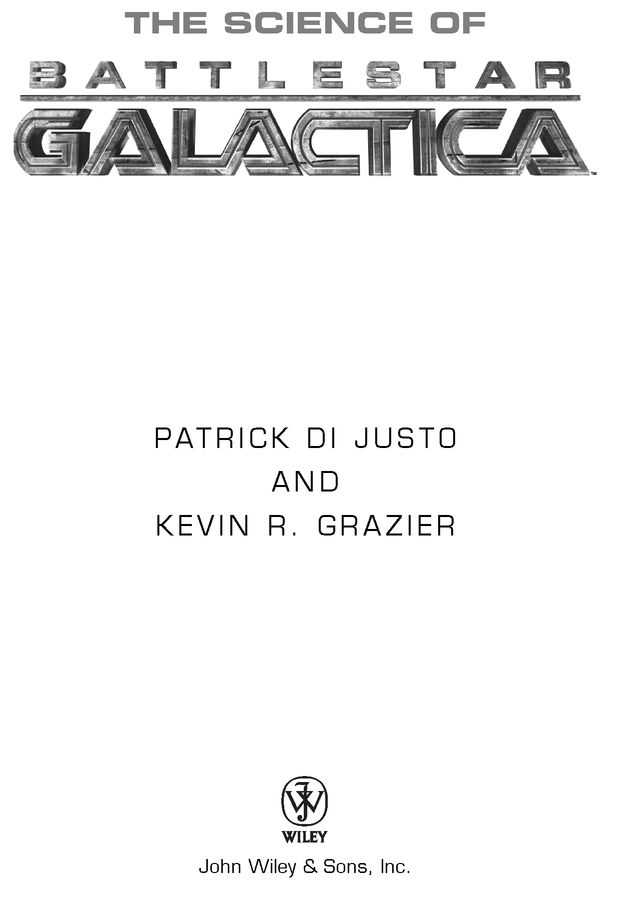Table of Contents
Copyright 2011 by Universal City Studios Productions LLLP. All Rights Reserved. Battlestar Galactica Universal Network Television LLC. Licensed by NBC Universal Television Consumer Products Group. All Rights Reserved.
Published by John Wiley & Sons, Inc., Hoboken, New Jersey
Published simultaneously in Canada
Credits appear on page 293.
No part of this publication may be reproduced, stored in a retrieval system, or transmitted in any form or by any means, electronic, mechanical, photocopying, recording, scanning, or otherwise, except as permitted under Section 107 or 108 of the 1976 United States Copyright Act, without either the prior written permission of the Publisher, or authorization through payment of the appropriate per-copy fee to the Copyright Clearance Center, 222 Rosewood Drive, Danvers, MA 01923, (978) 750-8400, fax (978) 646-8600, or on the web at www.copyright.com. Requests to the Publisher for permission should be addressed to the Permissions Department, John Wiley & Sons, Inc., 111 River Street, Hoboken, NJ 07030, (201) 748-6011, fax (201) 748-6008, or online at http://www.wiley.com/go/permissions.
Limit of Liability/Disclaimer of Warranty: While the publisher and the author have used their best efforts in preparing this book, they make no representations or warranties with respect to the accuracy or completeness of the contents of this book and specifically disclaim any implied warranties of merchantability or fitness for a particular purpose. No warranty may be created or extended by sales representatives or written sales materials. The advice and strategies contained herein may not be suitable for your situation. You should consult with a professional where appropriate. Neither the publisher nor the author shall be liable for any loss of profit or any other commercial damages, including but not limited to special, incidental, consequential, or other damages.
For general information about our other products and services, please contact our Customer Care Department within the United States at (800) 762-2974, outside the United States at (317) 572-3993 or fax (317) 572-4002.
Wiley also publishes its books in a variety of electronic formats. Some content that appears in print may not be available in electronic books. For more information about Wiley products, visit our web site at www.wiley.com.
Library of Congress Cataloging-in-Publication Data:
Di Justo, Patrick, date.
The science of Battlestar Galactica / Patrick Di Justo, Kevin Grazier.
p. cm.
Includes bibliographical references and index.
ISBN 978-0-470-39909-5 (pbk.); ISBN 978-0-470-88202-3 (ebk);
ISBN 978-0-470-88203-0 (ebk); ISBN 978-0-470-88204-7 (ebk)
1. Technology-Popular works. 2. Science-Popular works. 3. Astronomy-Popular works. 4. Science fiction, American. 5. Battlestar Galactica (Television program : 1978-1979) 6. Battlestar Galactica (Television program : 2003) 7. Battlestar Galactica (Television program : 2004-2009) I. Grazier, Kevin Robert, date. II. Title.
T47.D54 2010
600-dc22
2010018485
For my mother and the memory of my father
P. D.
To everybody who made
Battlestar Galactica a reality
K. G.
FOREWORD
Im going to tell the best possible story, and I dont care how many geeks I have to offend to get it done.
This sentiment, in various incarnations, is frequently expressed by television writers. What they mean is that theyre willing to ignore science, the what-would-really-happen, in order to tell the most compelling story. And, honestly, that makes sense. A TV writers job is to entertain, after all. Its 30 Rock, not Igneous Rocks. And it is certainly true that the tension in your real-time nail-biter of a detective drama might dissipate somewhat during that realistically long wait while the lab patiently sequences DNA. Settling on a less-than-dramatic story just so that the tiny percentage of viewers who know the science arent tempted to throw thingsit just doesnt seem like a winning strategy.
But the two priorities do not have to lie in opposition to each other. At Battlestar Galactica (also referred to in this book as Battlestar, Galactica, and BSG), writers were not allowed to jettison science for the sake of story. Other than in specific instances of intentionally inexplicable phenomena, science was respected. In this way, Battlestar Galactica resembled the classic tradition of science fiction novels, which didnt see science as a hindrance to the story but as a springboard.
The first episode of Battlestar that I cowrote was called The Passage, and it was all about a risky mission in which pilots escort an instrument-blind fleet through a high-radiation space phenomenon called a globular cluster. The mission was complex in terms of tactics as well as science, a tough one-two punch. My initial instinct was to simplify the mission, the dangers, the scienceto simplify somethingbecause I simply couldnt believe that the fragile tension of a forty-two-minute story could bear for seven of those minutes to be exposition. I wasnt convinced that it would work, in fact, until I saw the completed episode. The meticulous set-up of the strategy and dangers rings true because it is true. At least, it is true to the extent that I captured what I was being educated about during the writing process. (Did you know theres a difference between radiation and radioactivity? Oh, well, thats just me that didnt know, then.)
The sentiment of story over science with which I started this piece still echoed in my ears, even after The Passage, and there was a period during which I had to learn the lesson repeatedly. When I needed something to malfunction on a Raptor, I was surprised to find that I actually had to investigate which of the Raptors functions were controlled by which mechanisms and where they were located. When I needed to describe the effects of death in a vacuum, I needed to resist rumor (Your lungs pop out of your nose!) and find out what really happens. (Your lungs dont pop out of your nose or anywhere else interesting.) And dont get me started on single-event upsets.
Sometimes we writers ignored the advice we were giveneither because there is a limit on the stretchiness of a teleplay to accommodate explanation, or because we really were dealing with a situation that intentionally defied explanation, or just because of limits on our time and skill. But we really tried, and the truism of story versus science seemed less true every time I tested it. In fact, it starts to seem absurd. Truth, generally defined as emotional truth, is a huge part of what makes a good story. Is it so surprising that other kinds of truth would also support, not undermine, the same goal? As the child of a chemist, Im startled it took me so long to realize it.
The man supplying the Battlestar writers with our technical and scientific information was Kevin Grazier. In the time that I was writing for the show he personally advised me on: algae, globular clusters, fuel processing, Raptor thrust and steering mechanisms, CO2 scrubbers, the effects of a vacuum on a human body, SEUs, hypoxia, hypothermia, constellations, the distances of space, Jumping, and a lot of things Ive already forgotten. If the Cylon base ship toilet in one of my first drafts had survived to a production draft, I suspect we wouldve had a talk about it, too. (I saw it as a sort of living pulsing suction-cup-shaped protuberance.)









